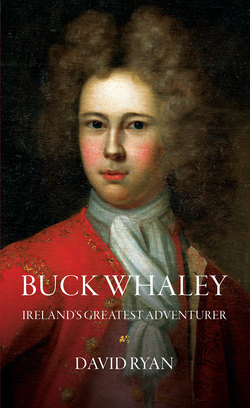Читать книгу Buck Whaley - David Ryan - Страница 19
На сайте Литреса книга снята с продажи.
Оглавление5
LIGHTNING AND THE MOON RISING
Towards midnight on 10 August 1788 Thomas Whaley found himself in an all too familiar setting. The scene: a private room in the Castle Inn, Brighton. The company: Whaley, a friend identified only as Mr Cr—r, and various gamblers and chancers, among whom was a Major Gardner, ‘a man of good breeding, fortune, and apparent honour’.1 The game: hazard, a dice game, here being played for very high stakes. As the dice rattled the flickering candlelight illuminated the players’ flushed and sweaty faces. Playing with the same company the night before, Whaley and Cr—r had both lost heavily and they were keen to make good their losses, but there seemed little chance of this as they looked to be roaring drunk. When it came to Gardner’s turn to throw, Whaley and Cr—r immediately staked large sums, which the Major eagerly accepted. Just as he was about to roll the dice Cr—r seized his hand and attempted to force the fingers open. Turning to the shocked company, Whaley shouted that Gardner was concealing false dice and that he and his friend were ‘ready to stake our lives upon the issue of a strict examination’. (W, 273) The Major, however, had no intention of opening his hand and the three men struggled violently, crashing to the ground near a laden sideboard. Grabbing a knife, Whaley warned Gardner that if he did not unclench his fist he would cut it open. This, the Major realised, was no idle threat and with great reluctance he succumbed. When the two dice in his hand were examined it was found that one had two fours, two fives, and two threes, while the other had two sixes, two fives, and two ones.2 Such are the rules of hazard that rolls resulting from such dice will always hand victory to the caster. Major Gardner had been fleecing the company.
Whaley and Cr—r were now as hard pressed to protect the cheat from the gamblers’ fury as they had been to unmask him. Most of those present wanted to defenestrate him, a not-uncommon punishment for gambling cheats. The Major himself was petrified. Expecting ‘instant destruction’ (W, 274), he begged for mercy. Whaley managed to secure him permission to depart unharmed, though his reputation was in tatters. Whaley and Cr—r then had the dice sealed inside a piece of paper and sent for examination by the Jockey Club, the body that superintended horseracing and, by extension, tried to ensure that gambling took place fairly and above board. As the disgraced fraudster prepared to flee the country, the Jockey Club commended ‘the merit of the gentlemen to whose spirit the world is so much indebted’.3
Whaley and his friend had resolved to expose Gardner the previous night after Cr—r confided that he believed him to be cheating. The pair had then feigned drunkenness in order to take their adversary off guard.4 Incidents like this give a sense of the crookery and double-dealing that went on in gaming houses across Britain and Ireland. In fact Gardner’s false dice were so common that they had a nickname, ‘The Dispatches’,5 presumably because by using them a gambler could easily ‘dispatch’ his opponents. With such widespread trickery at play it is little surprise that Whaley lost heavily so many times while gambling. Even though he managed on this occasion to uncover the deception, it did not save him from another bruising loss. The large sum he had staked to expose the Major had vanished from the table in the course of the uproar, and when this was added to his other losses in Brighton he found himself all but penniless. Ordinarily this would have been bad enough, but the timing of this particular setback, just before his planned departure for Jerusalem, made it particularly serious. To be clapped on the back by the Jockey Club was all well and good but it did not save him from the fervent attentions of his creditors, one of whom had him arrested in London soon afterwards for non-payment of £1,500. The possibility of incarceration in a debtors’ prison now loomed large. In London the most notorious such institution was the Marshalsea, later vividly described by Charles Dickens in Little Dorrit. The Marshalsea’s inmates faced starvation and even torture if they could not support themselves. As many as fifty could be crammed into a single room, sanitation was non-existent and disease was rife. There was now a very real possibility that Whaley would end up in this hellish place.
